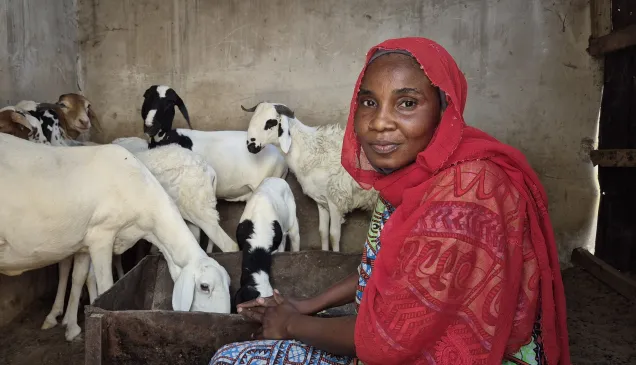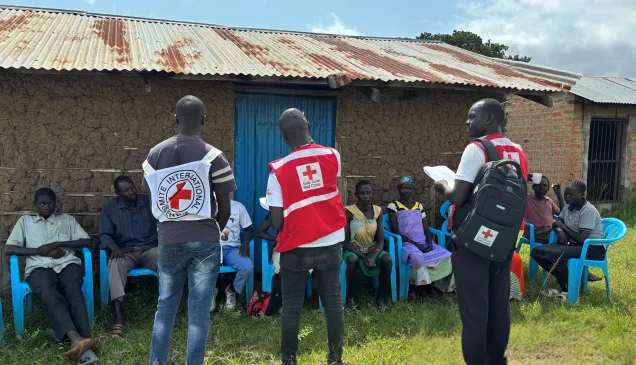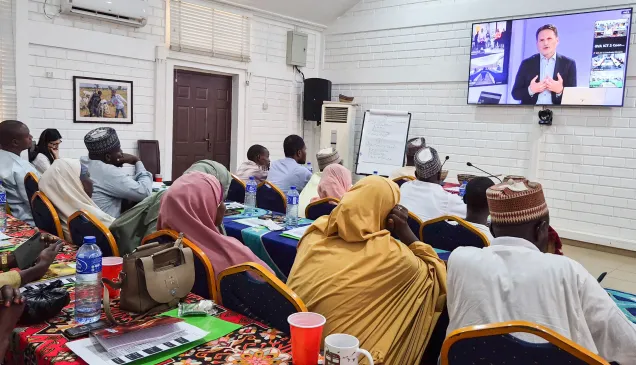Wuro Dadi is part of a network of farmer and herder settlements that live on the flood plain of the Benue river, on the outskirts of the capital city of Yola.
Nigeria: Wuro Dadi families get seeds, farm inputs to rebuild
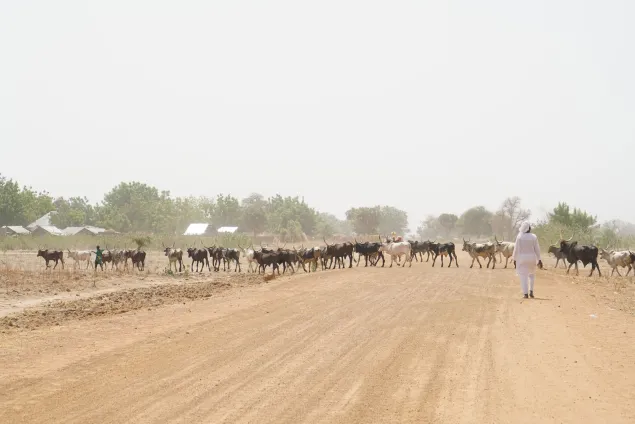
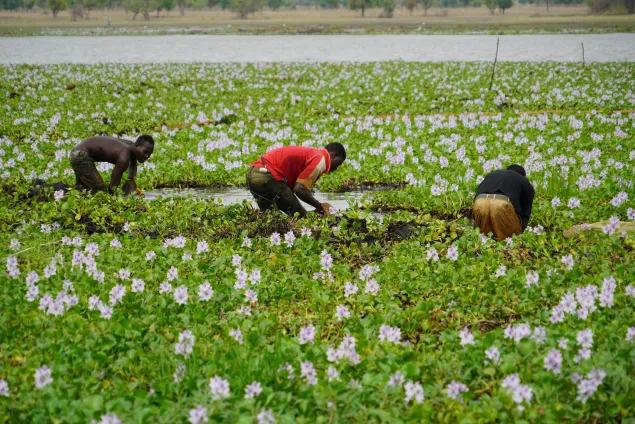
Fishing and farming are the main occupations in Wuro Dadi. After the loss of seeds and property, fishing the local pond has been the only source of livelihood for the community. The pond is replenished each year by flood waters from the Benue river during the rainy season.
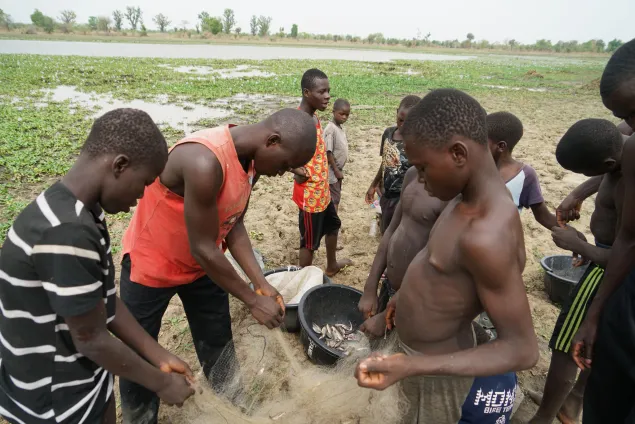
Boyomoso Eli, second from left, sustains his family of four by selling his catch for money he’ll use to purchase food. His income averages about three US dollars per day.
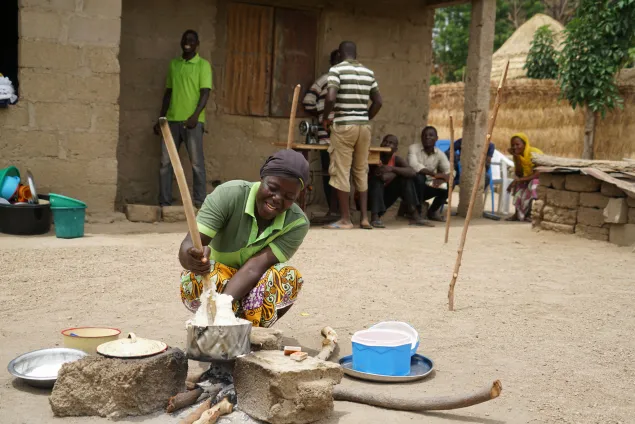
A woman cooks tuwo, a staple meal in Northern Nigeria. It is usually made from corn, millet or rice flour. To help them plant their farms again, maize and rice seeds were distributed to the families in Wuro Dadi.
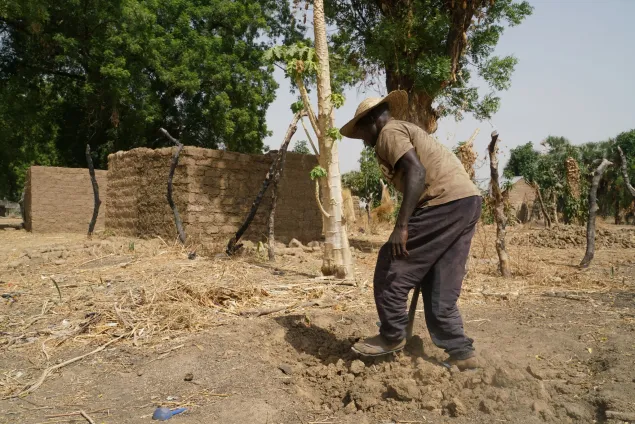
A man rebuilding his home after it was destroyed in the attack on Wuro Dadi. The ICRC is assisting the community to rebuild 77 homes using local materials and labour.
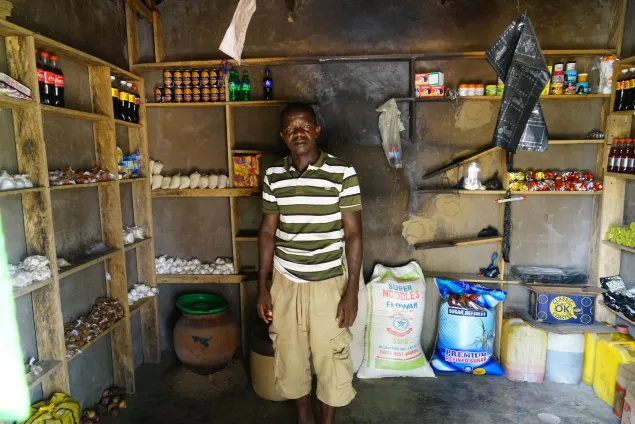
Bitrus Alvadi stands in the middle of his store which was destroyed during the attack. Bitrus received maize and rice seeds from the ICRC and a cash grant for the purchase of farm tools and food. The injection of cash in the community helps stimulate local business.
In April, two hundred families in Wuro Dadi, a village in Adamawa state, Nigeria, received from the maize, rice and cowpea seeds. Each family also received a cash grant for the purchase of food and tools. This was part of a wider agricultural support programme that the International Committee of the Red Cross carried out for more than 80,000 families that were affected by armed conflict and violence.
The daily lives of the people of Wuro Dadi were recently disrupted by communal violence, further exacerbating the humanitarian challenges already posed by the Lake Chad conflict, now in its tenth year. Houses, property and farm produce were destroyed during the violence leaving the entire community with very limited resources to sustain its livelihood.

